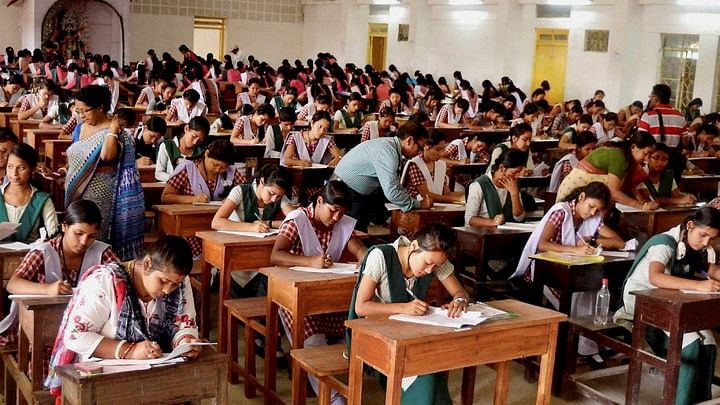

On Monday, CBSE decided to end the long-standing system of ‘moderation’ of Class 12 board marks, announcing the end of the flawed marking practice that has affected lakhs of students over the past decade by unfairly and unequally bumping up marks.
The move comes ten months after this reporter’s investigation on CNN-News18 exposed the discrepancies in the system of standardisation of marks practised by the CBSE and the ISC, two of the country’s largest board exams.
Along with the CBSE, 31 other school boards have agreed to do away with this practice of bumping up or spiking students’ marks to show higher scoring results.ADVERTISEMENT REMOVE AD
The consensus was reached at a three-hour-long meeting on Monday that was attended by officials from the Union HRD Ministry, state boards from across India and the CBSE.
The meeting was helmed by the HRD Ministry’s School Education Secretary Anil Swarup.
In the meeting held with State and Central Education Boards, consensus arrived at doing away with "spiking" of marks through "moderation".
— Anil Swarup (@swarup58) April 24, 2017
On Tuesday, HRD Minister Prakash Javadekar told The Quint that the boards had voluntarily come to this decision without pressure from the government.
CBSE scraps 'moderation' of marks, 10 months after my story exposed the rot within the marking systems of the CBSE and the ISC. @TheQuint pic.twitter.com/5Cg7Kq2kaC
— Meghnad Bose (@MeghnadBose93) April 25, 2017
The expose on CNN-News18 last June and subsequent media reports had forced the CBSE to raise the matter internally and look for a remedy. In December 2016, the board’s governing body agreed that scrapping moderation of marks entirely would be the best way to go ahead. However, it felt that it would be disadvantageous to the CBSE if it were the only board to scrap moderation while other boards continued the practice.
As a result, the CBSE had sought the Union HRD Ministry's help in bringing state boards together so that a consensus could be reached on the issue.
With 32 boards deciding to stop moderating marks, it would seem that their efforts have paid off.
(At The Quint, we question everything. Play an active role in shaping our journalism by becoming a member today.)